If you’ve been doing everything ‘right’ – eating healthier, getting more active – but still struggling to lose weight, undiagnosed sleep apnea could be sabotaging your efforts.
While obstructive sleep apnea (OSA) affects between 2-24% of the adult population, 20-40% of individuals living with the disease of obesity suffer from OSA. The reason that OSA seems to affect the population living with obesity is because there is a bidirectional relationship between the two, making it harder to reduce symptoms of either disease without addressing both together.
People lose the most weight when they take part in a complete lifestyle intervention program, including a restricted caloric diet and increased physical activity along with measures to optimize other factors like stress levels, as well as sleep. Sounds like a lot? Don’t worry! We are here to help you understand the connection between sleep apnea and weight loss while providing three helpful tips to jumpstart your journey.
Tip #1: Strategic Nutrition for Sleep Apnea and Weight Loss
Food can be a simple pleasure in life. More than just fueling the body, eating is also a way we connect with others. Communal eating increases social bonding and feelings of wellbeing, and enhances one’s sense of contentedness. When you start to look at ways you can optimize your nutrition to fit in your lifestyle with enjoyment, there are a few key things to keep in mind.
Prioritize Protein to Support Weight Loss and Sleep Apnea Relief
A higher protein diet can help to keep you satisfied longer and feel less hungry throughout the day. In addition, the body uses more energy to digest protein which can boost your metabolism. A boost in your metabolism and feeling less hungry throughout the day sounds ideal right? The benefits don’t stop there. By implementing a high protein diet during weight loss, you are also protecting your muscles. While you might be noticing your waistline getting smaller, you are losing more than just fat. Your muscles are also affected by weight loss and eating a higher protein diet can help preserve lean mass. This is especially important for sleep apnea, because stronger muscles throughout your body, including those around your airway, can help to reduce sleep apnea symptoms because your airways are less likely to collapse.
Sleep-Boosting Nutrients That May Reduce Sleep Apnea Symptoms
Let food be your medicine for better sleep. When it comes to sleep, there are foods that can be incorporated into your daily life to help improve your sleep. With less sleep disruptions and awakenings, you set yourself up for success to make better food choices the next day because you might not have the same cravings. Leafy greens, nuts, seeds, berries, and omega-3 rich foods such as salmon are full of nutrients that the body needs. Omega-3 fatty acids help to manage inflammation and help to reduce swelling in the airways that can make sleep apnea symptoms worse. Magnesium-rich foods help to promote relaxation and reduce nighttime disturbances. The time you eat is another factor that you must consider. Try to aim to stop eating 2-3 hours before bed to reduce the risk of acid reflux that can worsen sleep apnea symptoms.
Mindful Eating Habits for Better Sleep and Apnea Management
Mindful eating is about transforming your relationship with food into one of awareness, appreciation, and nourishment. It involves slowing down, paying attention to your food, and honoring your body’s hunger and fullness cues. Mindful eating tips include minimizing distractions (such as reading, scrolling, or watching TV while you eat), eating slowly, and putting your fork down between bites. These techniques can help you to focus on your food and be in touch with the sensations that occur when your body starts to signal that you are full.
Tip #2: How Exercise Helps Alleviate Sleep Apnea Symptoms
It can be overwhelming to add one more thing to your daily life if you feel like your plate is already filled to the brim. Yet even a small amount of activity can help all your efforts at a healthier life. And this isn’t just about burning calories – movement boosts mood and motivation while strengthening the muscles of your airway. Let’s explore some practical ways to get started incorporating a new routine into your life because losing 5-10% of body weight can help to lower OSA symptoms.
Incorporating Daily Movement to Improve Sleep Apnea Symptoms
While going to the gym for an hour a day might not fit in your schedule, there are other ways that you can incorporate more movement into your day to help with your weight loss journey. Try to incorporate “exercise snacks” throughout the day. You can take the elevator instead of the stairs or park further away in the parking lot to get a few more steps in. Another option is to step away from your desk every hour to stretch or do a few sit ups – or any other movement that your body might crave at the moment. Whatever you choose, it is important to be realistic and make your new exercise routine fun and find what works for you so you stick with it. Remove the barriers that could prevent you from doing the exercise you set out to do. That might be packing your gym bag the night before or placing your sneakers by the front door to get a quick walk in during your lunch break.
Strengthening Airway Muscles with Targeted Exercises for Sleep Apnea Relief
There are exercises you can do while you are relaxing on the couch or in bed that will help reduce sleep apnea symptoms. Humming or singing can help to strengthen the muscles around your throat and airway. These can be used as a compliment to other exercises to help reduce your OSA symptoms. Consistency and patience are key to experiencing the full benefits of the exercises.
Tip #3: How Sleep Apnea Disrupts Your Hormones
There are so many factors that go into weight loss and even when you do everything “right” you might not see the results you want, and it is not your fault! When sleep apnea disrupts your sleep, the hormones that regulate your hunger and metabolism are affected making weight loss feel like an uphill battle. Sleep apnea not only affects your quantity of sleep but also your quality of sleep.
Hormones and Sleep Apnea
A few of the hormones that are affected by sleep apnea are leptin, ghrelin, and cortisol. Ghrelin is responsible for regulating appetite, food intake, and energy exposure. This leads to an increase in appetite and causes cravings for foods that are higher in sugar and carbohydrates to get a quick surge of energy.
Leptin – which signals fullness – is another hormone that is affected by sleep apnea. In individuals living with obesity, leptin resistance can occur meaning your body loses the ability to recognize when you are full. Disruptions in ghrelin and leptin can be a blocker when you are trying to lose weight, but the good news is that just three months on CPAP therapy showed an improvement in regulation of these hormones.
Cortisol, commonly known as the stress hormone, is another hormone that impacts the body in many ways. It can cause increased levels of fat deposition in the abdominal area and may increase your appetite abnormally. When cortisol is abnormally high, you may find yourself walking down the sweets aisle at the grocery store even though you know that those aren’t the best things to have in your house. You may have finished the bag of chips when you only meant to have a few. Higher cortisol levels can also increase the risk of diabetes and cause a reduction in insulin sensitivity. All of these things can sabotage your efforts to lose weight and improve your sleep apnea symptoms.
This isn’t about finding excuses for why weight loss is hard, it’s about understanding exactly what is happening in your body so you understand how to lose weight with sleep apnea.
Your Weight Loss Journey with Sleep Apnea Starts Now
Your struggles with losing weight aren’t due to a personal failing; there is a complex relationship between sleep apnea and weight balance. When sleep apnea disrupts your sleep, it hijacks your hormones that regulate hunger and your metabolism making it harder to lose weight.
Understanding these strategies that give you tools to work with your body, you can start to break the cycle that keeps sleep apnea and obesity from feeding off each other. Remember, even implementing modest changes can start to help you feel the results. Start where you are with what you have and be patient with yourself. It takes time and consistency to reclaim both your sleep and health.
At Ognomy Sleep we can be a resource for you. With sleep specialists who understand the relationship between sleep and weight, we are able to help establish a comprehensive treatment plan to help you on every step of your journey. Schedule a telehealth appointment today.













